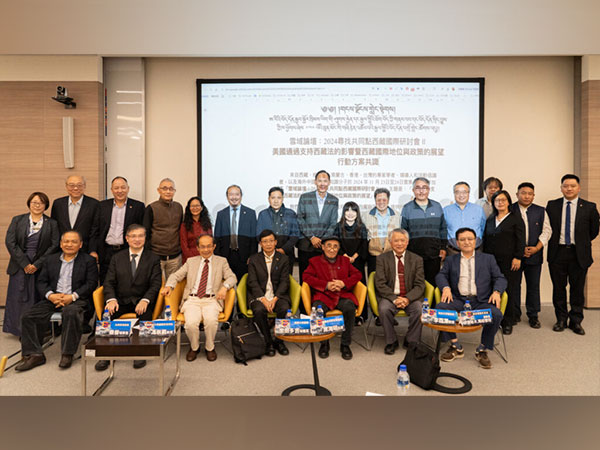Global Forum Rallies Support for Tibet: Uniting Against Authoritarianism
National Chengchi University in Taiwan hosted a symposium to address the impact of US legislation on Tibet, China's authoritarianism, and the global political landscape. Key figures emphasized the importance of unity and international cooperation in defending Tibet's cultural and political identity against China's repressive actions.

- Country:
- Taiwan
At Taiwan's National Chengchi University, a pivotal symposium titled 'Symposium on Finding Common Ground' convened on November 23-24. Organized by the Tibet Religious Foundation of His Holiness the Dalai Lama, this event critically examined the impact of US legislation on Tibet, the evolving global political environment, and the authoritarian surge under China's Xi Jinping.
The Central Tibetan Administration highlighted the presence of influential Tibetan leaders, scholars, and supporters from regions such as Taiwan, East Turkistan, Hong Kong, and Southern Mongolia, alongside China's pro-democracy movement. Secretary Karma Choeying of the CTA delivered a thought-provoking address, underscoring Tibet's historical narrative, advocating for dialogue through the Middle Way Approach, and emphasizing the impact of US legislation recognizing Tibet's independent status.
The symposium's morning session on November 23 saw experts like Representative Kalsang Gyaltsen Bawa and Akio Yaita discussing the ramifications of US legislative measures, shedding light on China's persistent human rights violations in Tibet. They advocated for global efforts to safeguard Tibet's cultural and religious heritage. Afternoon discussions featured prominent voices like Jamyang Tsering, Tsultrim Gyatso, and Tenzin Phentok, addressing internal Tibetan divisions, urging unified international responses, and condemning China's cultural erasure tactics.
Concluding the event, attendees called for stronger global collaboration supporting Tibet's autonomy struggle, urging decisive actions from governments worldwide to combat China's attempts at isolating and suppressing Tibet's unique cultural identity. The symposium highlighted growing international solidarity and the importance of sustained advocacy to preserve Tibet's autonomy and cultural richness.
(With inputs from agencies.)










